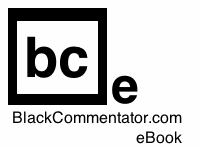
Obama…Organizing for America…Action

First let me admit that I was wrong in my last column in regards to the Congressional Republican’s death wish because of the anger and disfavor generated through their holding the “faith and credit” of the country hostage to their demands being fulfilled before voting to lift the debt ceiling. It seems that some of the wiser heads in the Grand Old Party sufficiently blunted the self destructive tendencies of the Tea Party faction and “the can was pushed down the road” three months. Instead, Congressional Republicans changed their tactics to challenge the Democratic-controlled Senate to pass a budget bill. Thereby, Obama gains another slight victory. I still believe that Obama was wrong to back off the powers given him by the 14th Amendment and the debt payment solution offered by the platinum trillion dollar coin. His administration, with trickster energy and the promulgation of foolishness, has deprived the country of a better understanding of the central bank establishment’s chicanery that is embedded in our currency/debt system and thereby has deprived us of the realization that this system needs to be fundamentally changed.
The Republican Party’s move, announced by Tea Party favorite,
Eric Kantor, briefly staunches the further fall of Congressional Republicans
out of favor but it is far from the end of their peril as thoughts turn toward
the 2014 midterm elections. It may seem too early to think about elections for
most of us but such is never out of mind for elected officials of either party.
Knowing that Democrats are also looking toward the next election highlights the
decision of the 2012 Obama campaign to reform itself into something being
called Organizing for Action (OFA).
After the 2008 election, the Obama campaign was subsumed
within the Democrat National Committee (DNC) and changed its name from Obama
for America to Organizing for America. This
injected the Party with the phenomenally successful online fundraising
operations and database network of national volunteers. However, the results of
the 2010 midterm elections (when there was an historic surge of Republican and
Tea Party candidates who captured state and federal positions) was testimony to
the failure of this presidential campaign and Party amalgamation.
In addition, Barack’s 2008 campaign’s articulation of the
need for “the people’s” continued attention and advocacy for him to be maximally
successful was also unrealized. Buried within the DNC, there was very little
advocacy from those millions of people involved in that campaign fighting with
him for political change in
The social change power engendered in Obama’s first campaign
essentially died. He fought the health care fight and his other first term
struggles surrounded by the typical Democrat politicians’ minions from the
The establishment of Organizing for Action, the 2012
campaign organization reformation outside of the Democrat Party, seems to be recognition
of the failure of the amalgamation of Organizing for America within
the DNC. Whether this new arrangement will solve more difficulties than it
causes is yet to be known. The traditional leadership of the Democrat Party has
previously been successful in resisting and squashing such outside-the-Party arrangements.
I am reminded of the Jesse Jackson presidential campaigns
and the Rainbow Coalition of which I was a part.
“If it is able to sustain the passion that propelled Obama
twice into the White House, the pro-Obama group may outstrip the role played by
traditional interest groups, from organized labor to the environmental
movement, and could form an independent power base outside the White House and
the Democratic Party…This is no small development in Democratic (sic) politics,”
said Steve Bene
of the Maddow Blog. More likely, I believe, is that
OFA will be seen as just another “Astroturf” grassroots army whose political
force will be discounted because it will be seen - probably accurately - as a group
directed and resourced from “on high.” Soldiers have loyalties to each other
and to some generals but are relatively weakly engaged in the specific
strategies, tactics, and compromises of engagements. Political activists most
often have deeper and broader attachments to the meaning and purposes of the
struggle, no matter how narrow that might be at times. Compromises on the debt
ceiling, gun control, and immigration reform will winnow the political
activists out of Obama’s OFA army and just leave some diminishing troop of “soldiers.”
There are a number of features needed for a sustainable, powerful,
effective, progressive national organization that can move us towards the
fundamental changes that are needed. Greater independence from candidates,
politicians, and partisan Parties is essential. Two of OFA’s
barriers to greater independence are (1) who controls the lists and the
technology and (2) who facilitates access to the significant resources ($) that
it is going to take to maintain such an organization. The 2012 Obama campaign ended
with $5.3 million left in its coffers. Who will this organization turn to once
those initial funds run out? Most often “he who pays the piper calls the tune.”
Self funding is absolutely necessary for sustainability. The loyalty of OFA is
not to a set of principles or beliefs other than those that are embodied in one
man. I severely doubt OFA will ever be critical of Obama even when it is
needed. The DNC will be worrying about the potential criticism of it and the
fact that this structure will likely not be helpful to the Party’s aspirations
for the 2014 midterm elections unless the candidates meet Obama’s approval.






